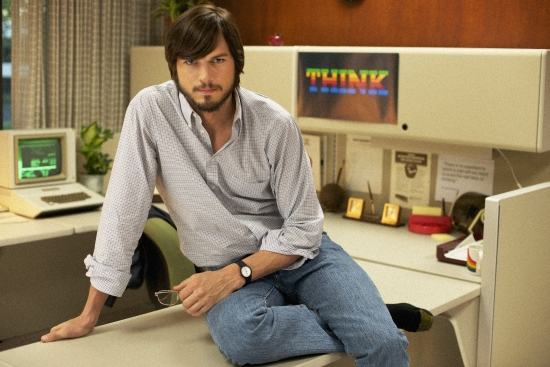Jobs
The man of the apple
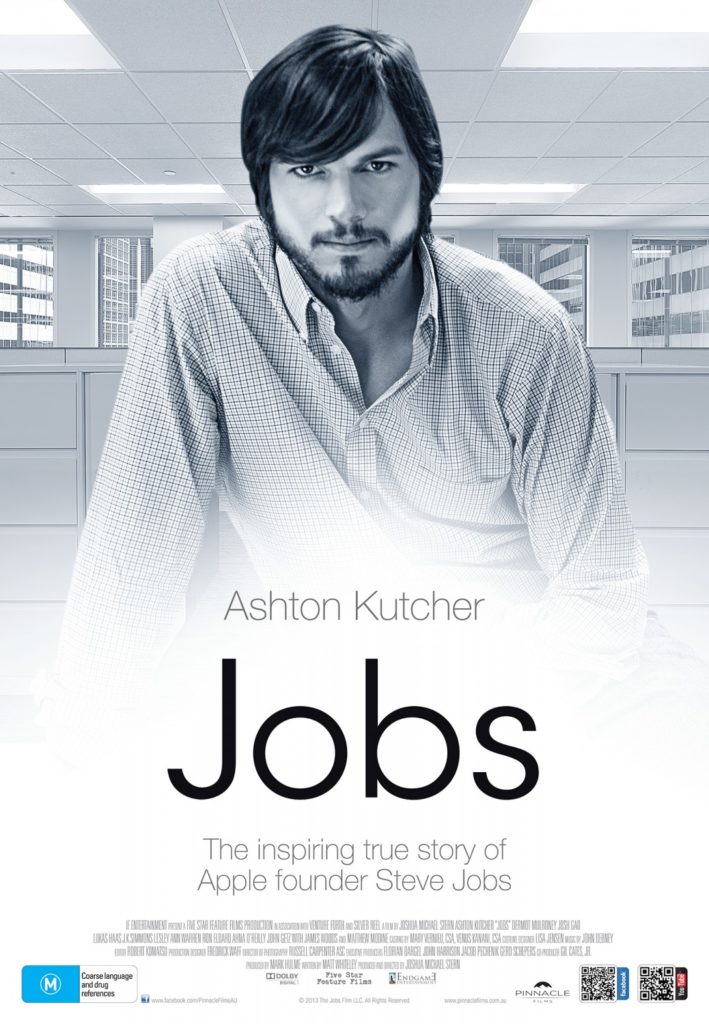
My dear readers will surely notice a nostalgic touch in this review, just as it has occurred in the last two weeks. But instead of the memories of youth, this week’s theme is the biopic “Jobs” (USA, 2013), which portrays one of the most controversial figures in the world, and which had its name perennially associated with the Apple brand, Steve Jobs.
It’s very likely that, for most people, Jobs’ name is associated with the Apple presidency, the half-crazy guy who died of cancer and who bequeathed to the world, among other things, the iPad and the iPhone. Well, those statements are still true, but his role in the computer and entertainment industry was much deeper, starting from his own origins.
It is impossible for a film of hour and a half to be able to tell, not only the life of one of the most multifaceted figures in recent history, but also to describe, in the eyes of today’s user, the revolution that was the arrival of the personal computer.

My readers will allow me, once again, to try to make a contextualization, because I had the rare opportunity to experience this revolution – with a certain delay, of course, because the world of the 70s was not that of instant communication that exists today.
Computer science at that time was so surreal that when the Federal University of Paraíba received its first computer, in the late 1960s, this was the subject of a reportage in a national magazine, with the suggestive title “Paraíba enters the era of computing”.
When I entered that university in 1975, the computer community was elated because they had managed to double the RAM of the computer, going from 8k to 16k! This powerful IBM 1130 mainframe occupied a huge room, which housed a gigantic CPU, punched card reader, magnetic tape drive, line printer, and even a 30 mega-byte hard drive.
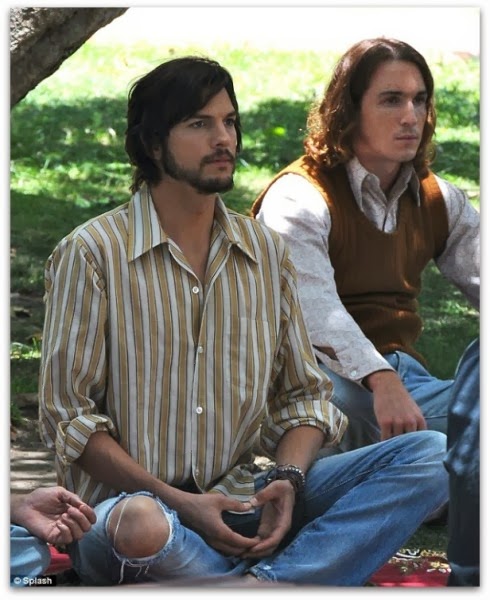
But while we were doing programs at FORTRAN and COBOL at university, a real revolution was happening in the United States. The bustling electronic industry had already surpassed the generations of the valve and transistor, offering the world the IC, or integrated circuit. This excited the world of hobbyists, mostly young fans, who set up suggested circuits in electronics magazines or specialized stores.
Two of those young people who came into this world headfirst were the Steves, Jobs (Ashton Kutcher) and Wozniak (Josh Gad), launching Apple, actually a motherboard for the end user to add a keyboard and a TV to view the commands. Although the creative genius was Wozniak, it was Jobs who realized there was a much more promising market than young hobbyists. They were supposed to offer a product to ordinary people who didn’t need to know anything about electronics!
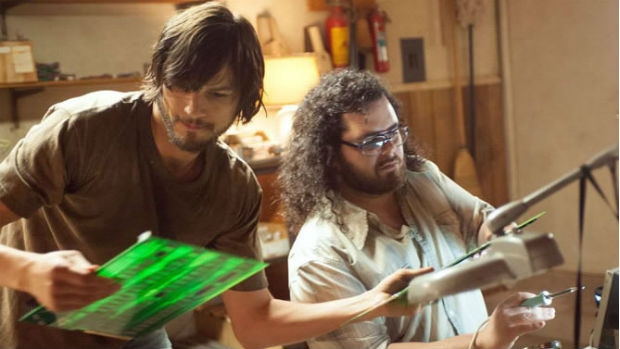
It was from this that was born the most successful design of a personal computer, the Apple-2. It had the appearance of a portable typing machine, but was actually a cabinet that housed power supply, motherboard and several slots, so that the users could configure their own machine.
The success was incredible, and made Apple become a large company in a very short time, generating an immense number of imitations and similar, including here in Brazil, during the time of the Computer Market Reserve. I even owned one of these “generic” copies, the TK-2000 model.
With the dominance of the personal computer market, Jobs set out for an ambitious project, Lisa, which would consume many millions and force the company’s management to withdraw the project from him. This made him know the Macintosh project, which became his new obsession. The Macintosh was revolutionary for offering a graphical interface that never existed, with icons and mouse, and that is the face of every computer nowadays.
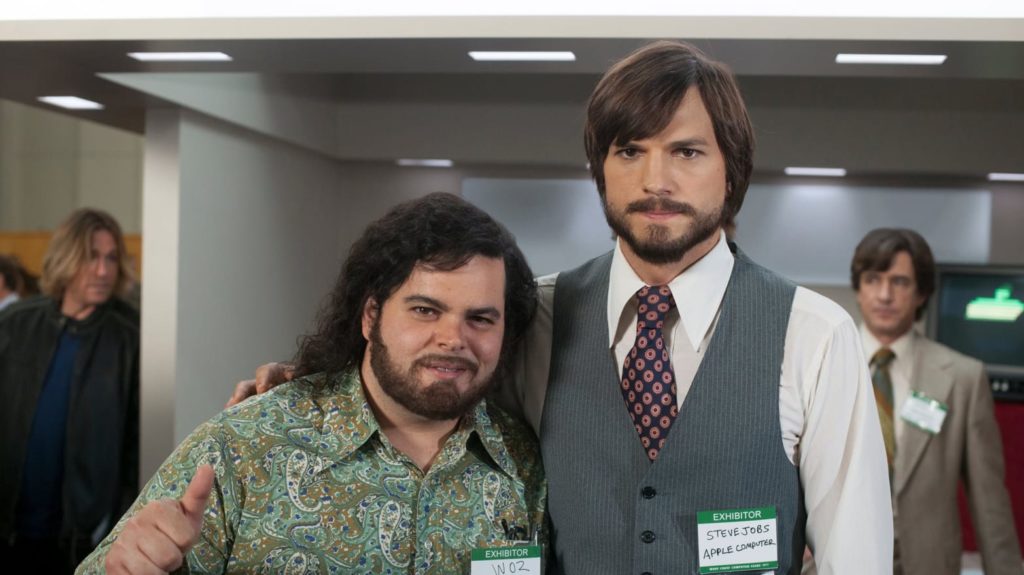
Due to Jobs’ obsessive character, the Macintosh has become such an expensive product that it precipitated his exit, and almost bankrupted the company. To get an idea, a unit costed ten thousand dollars, an absurd amount for the time.
Jobs’ return to Apple had symbolic value for both the company and the market, and it was the opportunity for him to impose his vision of products with beautiful design and good quality, but where everything, hardware and software, was under the control of the company.
The film “Jobs” is very faithful to the life of Jobs and Apple, though all very succinctly. Ashton Kutcher strives to represent the mannerisms of the real Jobs, although the personality traits that have been portrayed with reasonable frankness are more important.
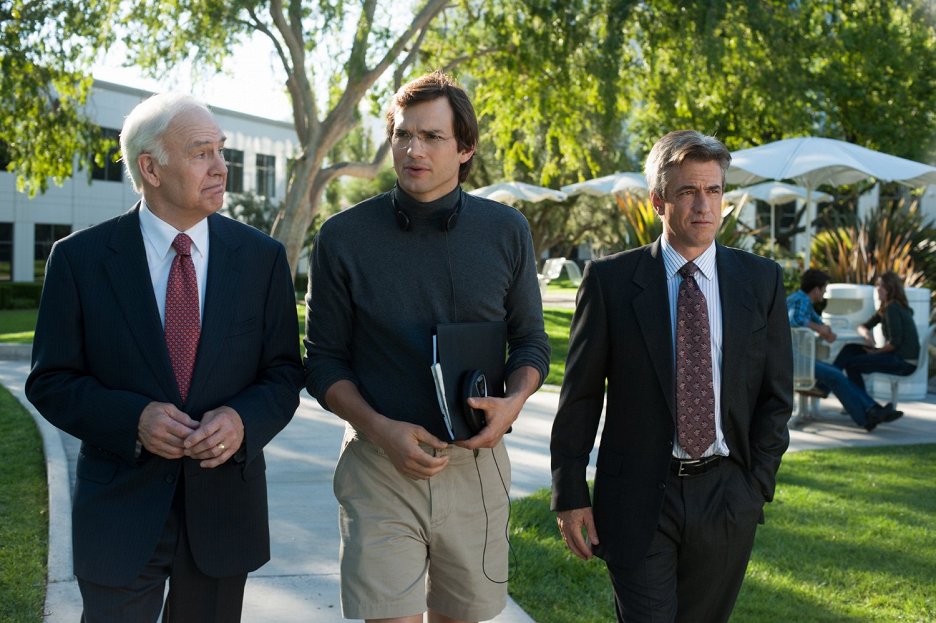
Self-centered and domineering, Jobs imposed his will with an iron hand, yelling at subordinates without the slightest concern for rules of civility and good coexistence. If it were today, he would have daily complaints for bullying, but the rules did not apply to him, who always parked in the disabled vacancy, a fact that is shown in the film.
Other dark sides of him were also shown, such as the rejection of his daughter Lisa, the fact that he would take over without the slightest ceremony other people’s ideas, and the absolute lack of loyalty to Apple’s first employees, who were simply abandoned without any retribution.
But, it’s undeniable that without Jobs’ visionary spirit, Apple would be just another backyard business, rather than the most valuable company in the world. By appropriating someone’s idea, he was able to turn it into a final product, even if he needed to use what he called “reality distortion.”
Although it presents important facts and personal aspects of this conflicting figure, the film sins by not showing the great revolution he produced when launching the iPod, not only by the beautiful apparatus that played digital music, but, the deployment of an entire sales infrastructure, which united the music companies through the powerful online store iTunes.
Another detail that was left aside, but that was critical to the entertainment world was Pixar. Originally a division of Lucasfilm, George Lucas, the company was bought by Jobs in 1986, who wisely left it in the care of Edwin E. Catmull, and who became the most important producer of films in computer graphics, being bought by Disney in 2006.
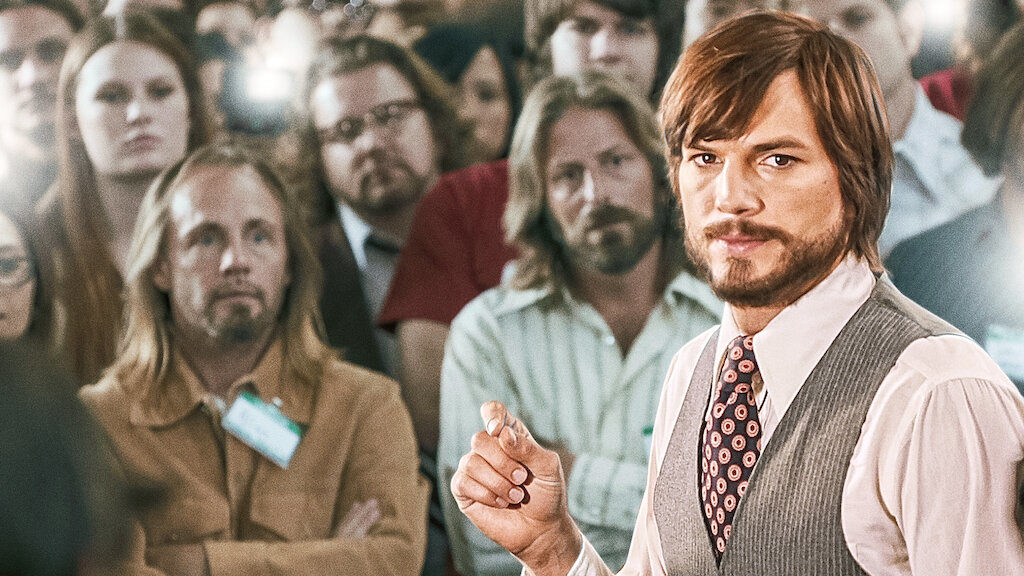
Jobs’ illness and death from pancreatic cancer in 2011 was also dropped, perhaps because it could bring a dramatic tone that would not converge with the film’s goals. It would be hard to show a selfish sociopath becoming a good martyr.
In fact, with his own qualities and flaws, Jobs was a person who changed the course of the history of electronics consumption, revolutionizing the use of the personal computer and transforming simple devices into objects of desire, capable of becoming symbols of social status for their owners.
For a deeper analysis of the character, I suggest reading the book “Steve Jobs” by author and researcher Walter Isaacson.
The movie “Jobs” can be watched on the Netflix streaming service.

